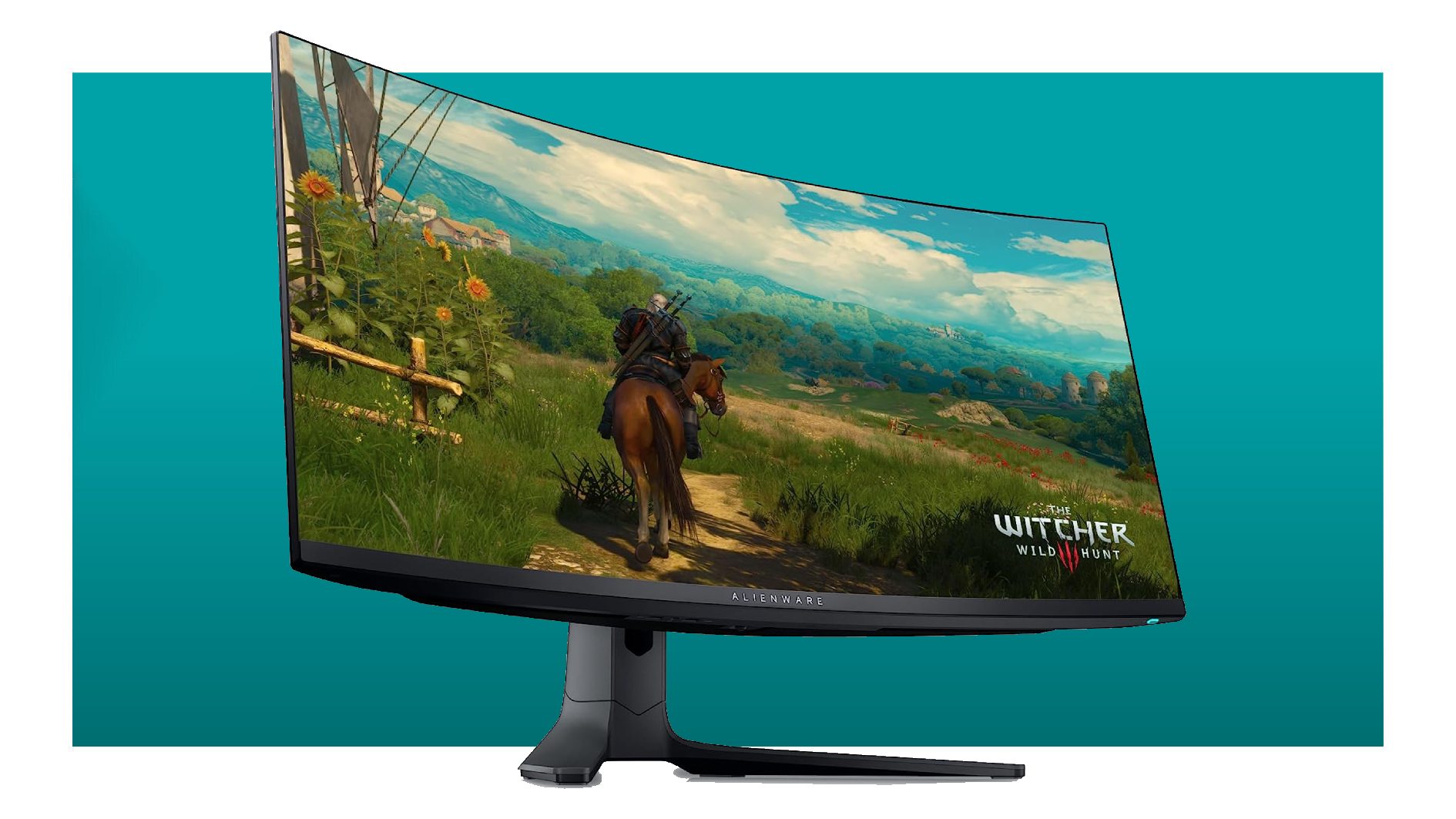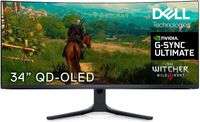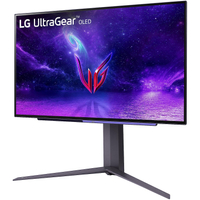The best OLED gaming monitor is also one of the best Prime Day gaming monitor deals
Alienware's gloriously glossy ultrawide OLED screen is our favorite gaming monitor right now, and it's more affordable than ever.

Alienware 34 AW3423DWF | 34-inch | 165Hz | 3440 x 1440 | QD-OLED | $1,099.99 $899.99 at Dell (save $200)
Alienware's fancy QD-OLED panel just got that little bit cheaper (check out our review). It's still not exactly entry-level at $899. But think of it as a long term investment that will make every single gaming session pop. Once you've experienced per-pixel OLED-style lighting, you won't want to go back to LCD tech.
Is Samsung's QD-OLED tech the ultimate in PC gaming screen tech? That's a tricky one. We certainly prefer Samsung OLED panels to LG's competing tech for PC usage. But then there are still things which old school LCD monitors do better. Like resolution and pixel density.
Anywho, if Samsung QD-OLED panels currently make for the best PC OLED monitors, then the good news is that Alienware's QD-OLED screen just got cheaper. Yup, you can now grab the Alienware 34 AW3423DWF for $899 at Dell. It's our pick as the best gaming monitor, not just the best OLED, either.
Now, that's still not exactly entry-level money. But if there's any PC component that worth investing in for the long haul, it's surely a monitor.
While the Alienware AW3423DWF is now cheaper, everything else remains the same. So, it's a 34-inch ultrawide model running 3,440 by 1,440 pixel. That's pretty much bang on for pure gaming, though arguably a tiny bit challenged when it comes to pixel density for general purpose computing.
For sure, if you like crispy fonts, tons of desktop real estate, razor sharp image quality, and oodles of visual detail, there are better options. What those options don't offer, however, is the combination of insane speed and perfect per-pixel lighting of the QD-OLED panel.
So, you can stick you mini-LED monitors and their 1,000-odd dimming zone. Every pixel on this panel is a dimming zone and that means you get five million of 'em. It's just a totally different proposition when it comes to contrast control and HDR performance.
Speaking of which, this AW3423DWF model with its glossy panel coating has much improved subjective contrast and immersiveness compared to the AW3423DW non-F model, which is actually more expensive on account of its Nvidia G-Sync chip and additional 10Hz of refresh, but runs a matte coating that makes everything look just a little bit gray.
As for speed, Alienware rates this monitor at 0.1ms for response time. OLED tech is at least an order of magnitude faster than any LCD-based monitor. Put simply, speed is a non-issue on today's OLED gaming monitors. The response problem has been solved.
LG Ultragear | 27-inch | 240Hz | 2560 x 1440 | W-OLED | $999.99 $849.99 at Amazon (save $150)
LG's latest OLED gaming monitor is already seeing a relatively tasty discount. Though it is still a lot of money to drop on a 1440p panel when you can but a 170Hz 1440p LCD screen for just $180. But this is OLED tech, from the OLED kings at LG. We prefer the Samsung QD-OLED, to be fair, but if you're after a standard 16:9 monitor rather than an ultrawide, the LG Ultragear is a great option.
Should you not be as enamoured with the idea of an ultrawide OLED gaming monitor, LG's Ultragear OLED is on sale today, too. The 27-inch 1440p panel is on sale for $850 at Amazon. We're more into the glossy screen, deep blacks, and generally higher brightness of Samsung's QD-OLED screens, such as in the Alienware. But if you're more into the idea of a traditional16:9 monitor—or you simply don't have the space for a massive 34-inch display—then LG's latest isn't going to disappoint.
If we do have a hesitation it's that OLED tech is quite new to the PC and developing fast. So, an OLED monitor bought today might date rather more rapidly than is the norm for displays, which tend to grow old fairly gracefully. But then you'd never buy anything if you worried too much about something better coming out down the road.
The biggest gaming news, reviews and hardware deals
Keep up to date with the most important stories and the best deals, as picked by the PC Gamer team.

Jeremy has been writing about technology and PCs since the 90nm Netburst era (Google it!) and enjoys nothing more than a serious dissertation on the finer points of monitor input lag and overshoot followed by a forensic examination of advanced lithography. Or maybe he just likes machines that go “ping!” He also has a thing for tennis and cars.



